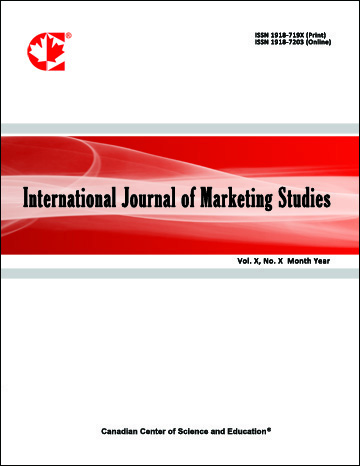More Promoters and Less Detractors: Using Generalized Ordinal Logistic Regression to Identify Drivers of Customer Loyalty
- En-Chung Chang
- Xiaomeng Fan
Abstract
Many business organizations measure customer loyalty by using a question suggested by Reichheld (2003)—“likelihood to recommend the company to friend or colleague (LTR, 0=extremely unlikely, 10=extremely
likely)”. The LTR question can determine a customer’s status as a detractor (LTR=0-6), a passively satisfied
customer (LTR=7-8), or a promoter (LTR=9-10). Although this measure of customer status has been widely used
in industry, no quantitative method so far has been introduced to analyze the underlying predictors of customer
status as detractors, passively satisfied customers, or promoters. This study bridges the research gap by
advocating Generalized Ordinal Logistic Regression (GOLR) as a viable statistical approach for identifying
predictors for transforming customer status into a higher level (i.e., pulling customers out of the pool of
detractors and driving them into the pool of promoters). Using online shopping as a research context, we found
that GOLR outperformed traditional linear regression in identifying important predictors of customer status and
in testing whether predictors have increasing or decreasing marginal effects on improving customer status to a
higher level. Based on the results of GLOR, companies can make full use of the LTR question and design
appropriate strategies for improvement.
- Full Text:
 PDF
PDF
- DOI:10.5539/ijms.v5n5p12
Journal Metrics
Google-based Impact Factor (2021): 1.34
h-index (July 2022): 70
i10-index (July 2022): 373
Index
- Academic Journals Database
- CNKI Scholar
- EconBiz
- Electronic Journals Library
- Excellence in Research for Australia (ERA)
- GETIT@YALE (Yale University Library)
- Harvard Library
- IBZ Online
- Infotrieve
- JournalTOCs
- LOCKSS
- MIAR
- PKP Open Archives Harvester
- RePEc
- ResearchGate
- ROAD
- Scilit
- SHERPA/RoMEO
- Stanford Libraries
- UCR Library
Contact
- Alyssa SunEditorial Assistant
- ijms@ccsenet.org
